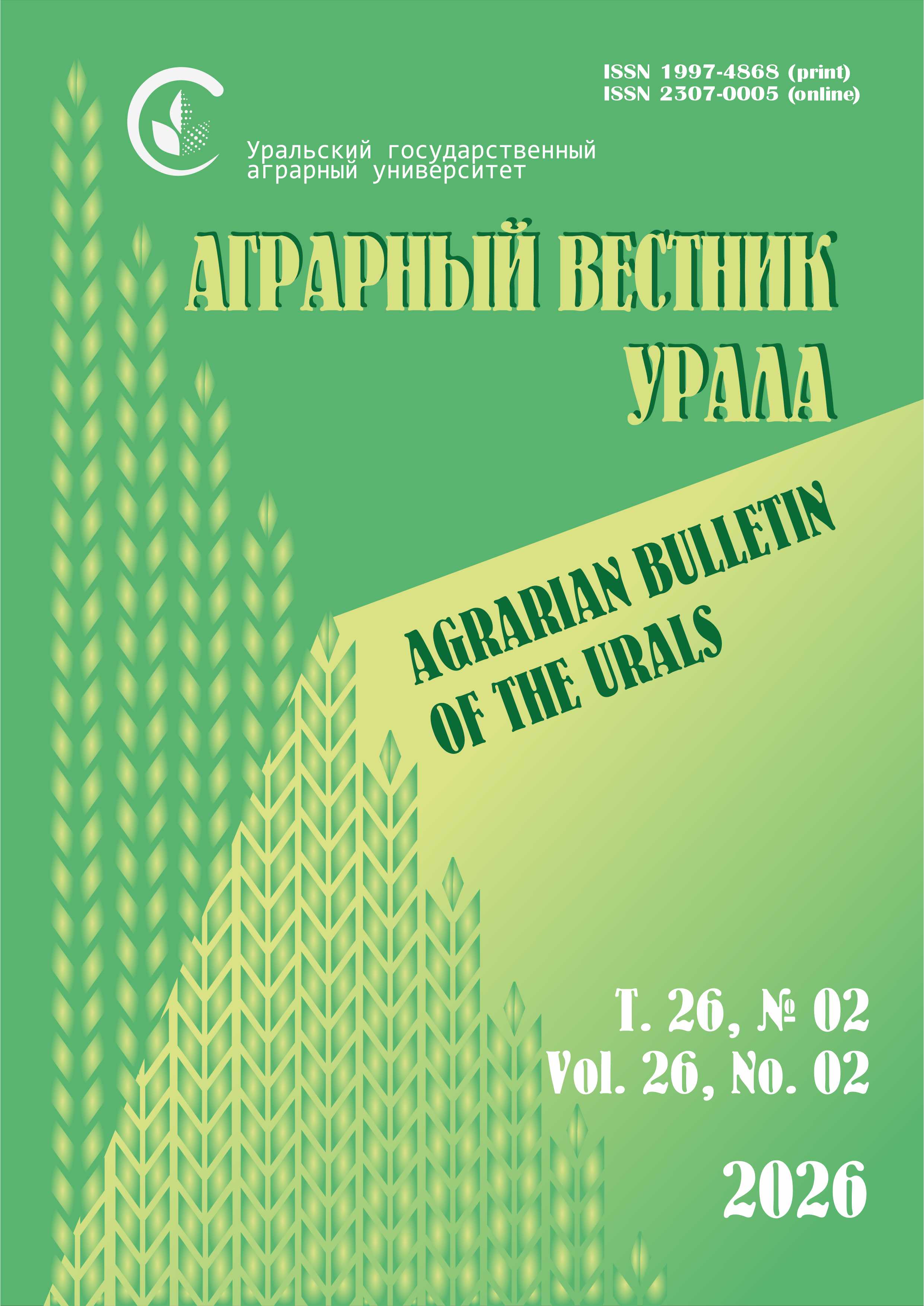Authors:
V. Yu. Skorokhodov
Federal Scientific Center of Biological Systems and Agrotechnologies of the Russian Academy of Sciences, Orenburg, Russia
E-mail: This email address is being protected from spambots. You need JavaScript enabled to view it.
Abstract. The purpose is to identify the potential yield of barley under the influence of temperature stress in conjunction with the prolonged action of mineral fertilizers and predecessors in the conditions of the steppe zone of the Southern Urals. Methods. The content of macroelements in the soil was determined: nitrate nitrogen – by the ionometric method according to Tyurin, mobile phosphorus according to Machigin, exchangeable potassium according to Maslova. Soil moisture was determined by the thermostatic-weight method. Mathematical processing of the obtained data was performed using the Statistica 12.0 program. Results. The experiment was carried out on two backgrounds of soil nutrition (with mineral fertilizers N40P80K40 and unfertilized). It was established that the growing season on average for 1993–2022 was warmer than the norm (19.1 °С) by 0.9 ± 1.6 °С, and in years with very strong aridity by 1.3 ± 1.7 °С. By harvesting barley in the dry years in a meter-long layer of soil, the consumption of soil moisture by the crop in the crop rotation increased by 21.0 %, with permanent cultivation by 31.8 %. The systematic introduction of mineral fertilizers under crop rotation increases their content in the soil and provides a prolonged effect. When cultivating barley in crop rotation, in severely dry years, potassium consumption increases for two backgrounds of nutrition (on a fertilized background up to 35.7 mg, on an unfertilized background up to 22.7 mg/kg), in single crops up to 3.4 and 17.4 mg/kg according to backgrounds. The average yield of barley over 30 years of research was 1.29–1.45 tons on a fertilized background, and 1.38–1.66 t/ha on an unfertilized background. Scientific novelty: with increased temperature stress and water deficit, over 18 very dry years, there was a noticeable decrease in barley yield in all variants of the experiment, especially single crops were most affected by drought, when crop yield on a fertilized background decreased by 0.45 tons, without fertilizer by 0, 38 t/ha.
Keywords: yield, barley, fertilizer, crop rotation, monopower, soil moisture, precipitation, dry years, occupied pairs.
For citation: Skorokhodov V. Yu. Vliyanie temperaturnogo stressa na urozhaynost’ yachmenya v Orenburzh’e [The effect of temperature stress on the barley yield in the Orenburg region] // Agrarian Bulletin of the Urals. 2023. Vol. 23, No. 10. Pp. 11‒21. DOI: 10.32417/1997-4868-2023-23-10-11-21. (In Russian.)
Download the full text of the article












